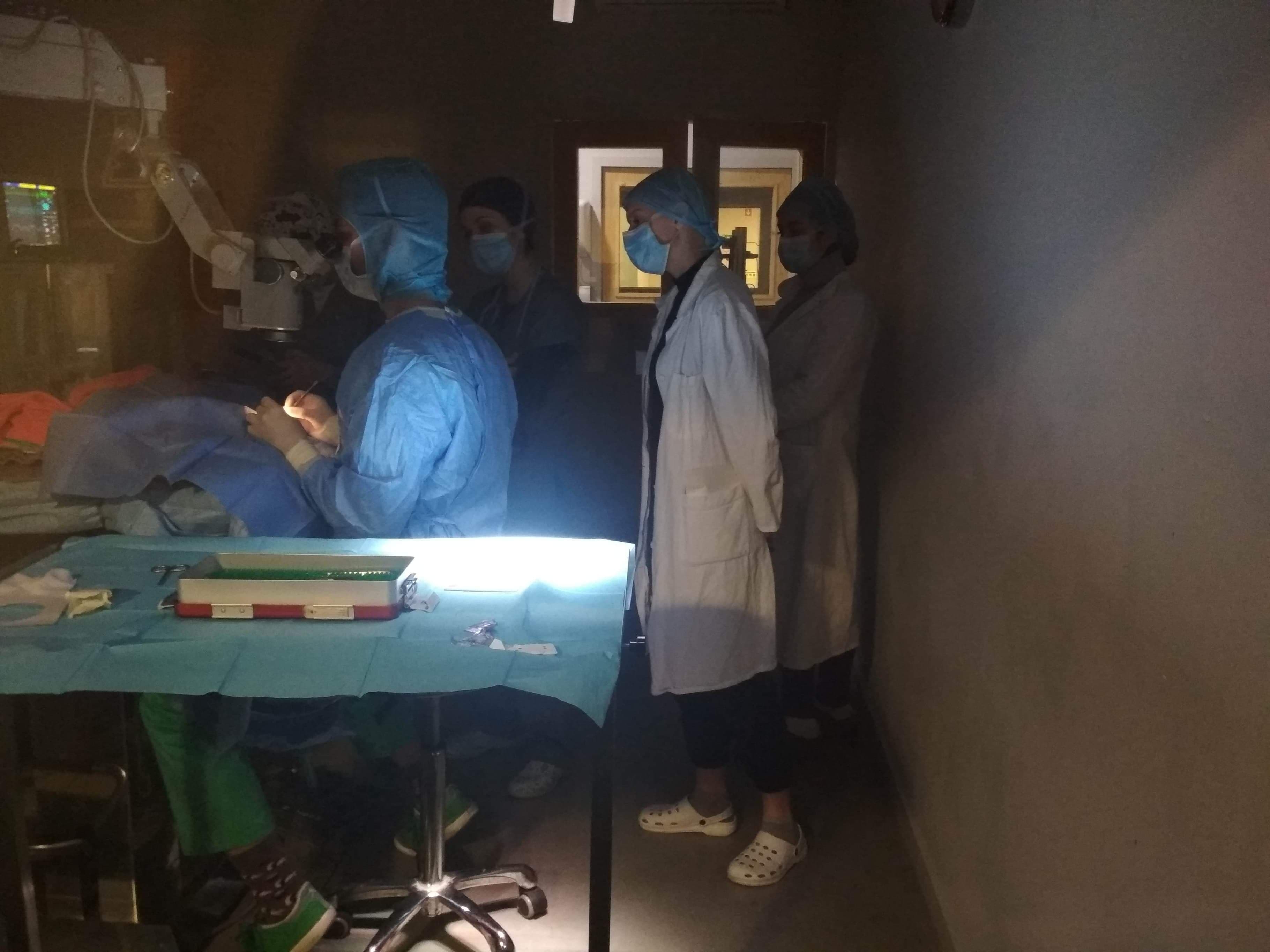Owners of dogs and cats in Portugal love their pets just like we do in the Czech Republic. However, the approach of veterinary clinics to their clients is different. It is difficult to say whether this situation is due to greater competition among clinics or generally warmer relations between people in the south of Europe.
Eight future veterinarians from the Grammar School and Secondary Vocational School in Plasy in the Pilsen Region returned with practical experience in veterinary clinics. The internship that the students completed abroad will help them find a job.
“Employers expect our graduates to have experience in veterinary clinics or agricultural farms as well as to be fluent in foreign languages. Veterinary care has been developing very rapidly in recent years. Students simply cannot do without broader professional and language competences when studying at university. That is why we have been sending our students to internships in Portugal for several years now, so that they can acquire new professional competencies and prepare for their future profession,” says Markéta Lorenzová, headmistress of the Grammar School and Secondary Vocational School in Plasy when introducing Erasmus+ internships.
The students of veterinary medicine have the opportunity to travel abroad for internships free of charge thanks to the active approach of this school to vocational education.

Short-term as well as long-term internships are on offer from this school year.
"In the autumn of 2019, we sent the first two graduates to Portugal for a three-month stay. They returned satisfied, and the local clinics also praised them. Our students represent the Czech Republic and veterinary studies very well,” adds Markéta Lorenzová. According to her, it is a great advantage that gaining experience abroad is paid by the European Commission. "It’s hard to imagine that students should negotiate and pay for this all by themselves. That would be financially unbearable, even for our school's budget. But thanks to the Erasmus+ program, we can engage pupils not according to their financial situation, but according to their interest in the studies and their school results. That’s what I really like about the program. In short, even pupils who come from economically weaker families can go abroad. It only depends on whether they are interested in veterinary care, and succeed in the selection procedure," says Markéta Lorenzová.

No sitting at school desks, but real work.
“We, for example, participated in eye surgery. We took care of pets and animals after anaesthesia, and we also tried everyday operation of the clinic. I would say that the love of the Portuguese for their pets is comparable to how people love dogs and cats in our country. But I think that clinics in Portugal have a warmer approach to animal owners, they talk to people more there. They even go to their homes to help them take care of their animals. Of course, it is a paid service,” adds one of the Erasmus+ participants.
Foreign internships will continue in the upcoming years
The Secondary Vocational School in Plasy received the VET Charter certificate, thanks to which it should be easier to obtain funding for their future projects. "We submitted another application in February, and we will know the results in May. In the meantime, however, we are preparing another group of trainees, who should go abroad in June this year. And in the summer we will send abroad two more graduates. There is a clear result arising from our experience with the Erasmus+ mobility project - we want to continue," concludes Markéta Lorenzová, headmistress of the Grammar School and Secondary Vocational School in Plasy.

The Erasmus + program was launched in 2014 and runs until 2020. More information at https://www.naerasmusplus.cz/